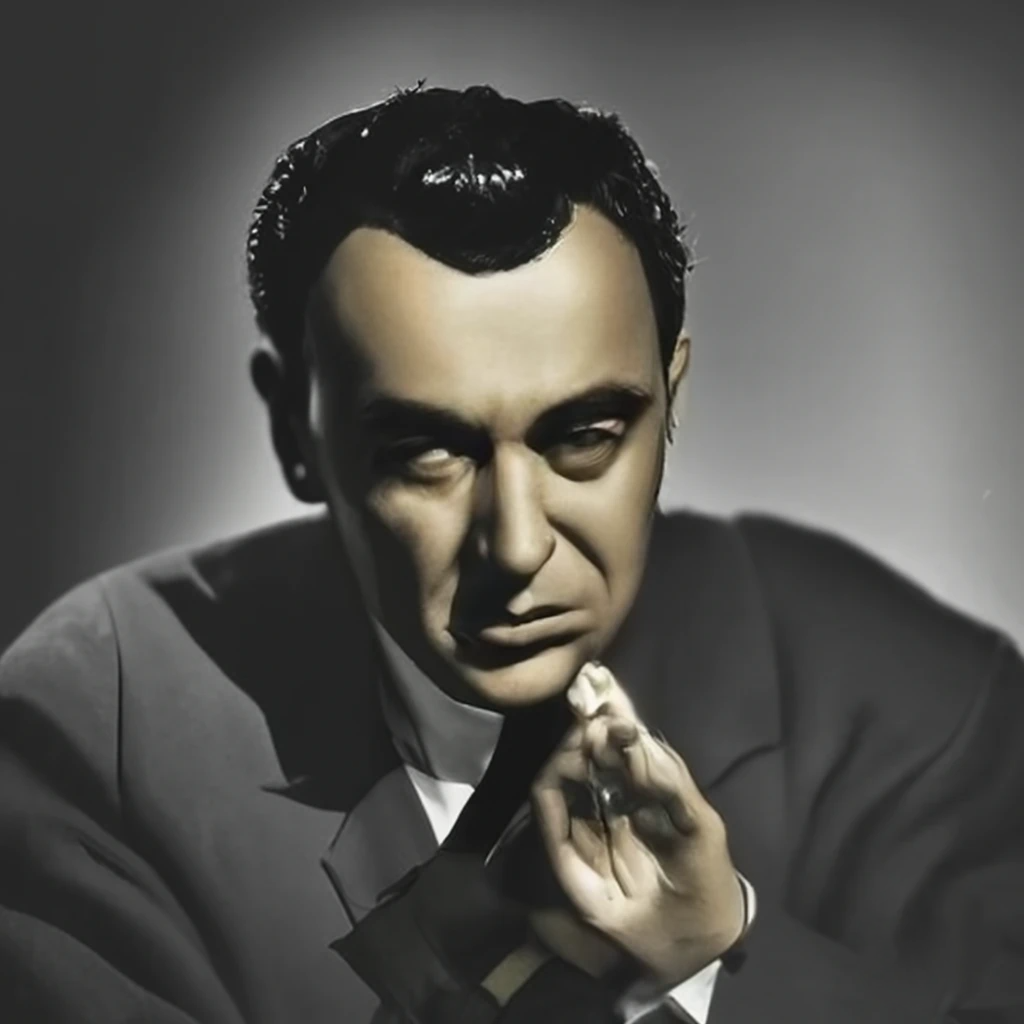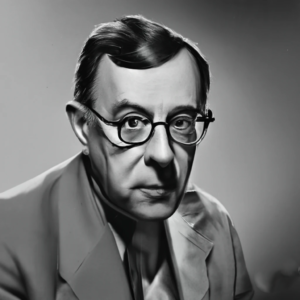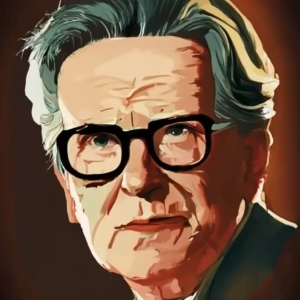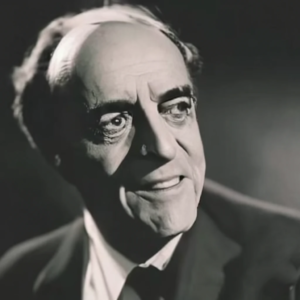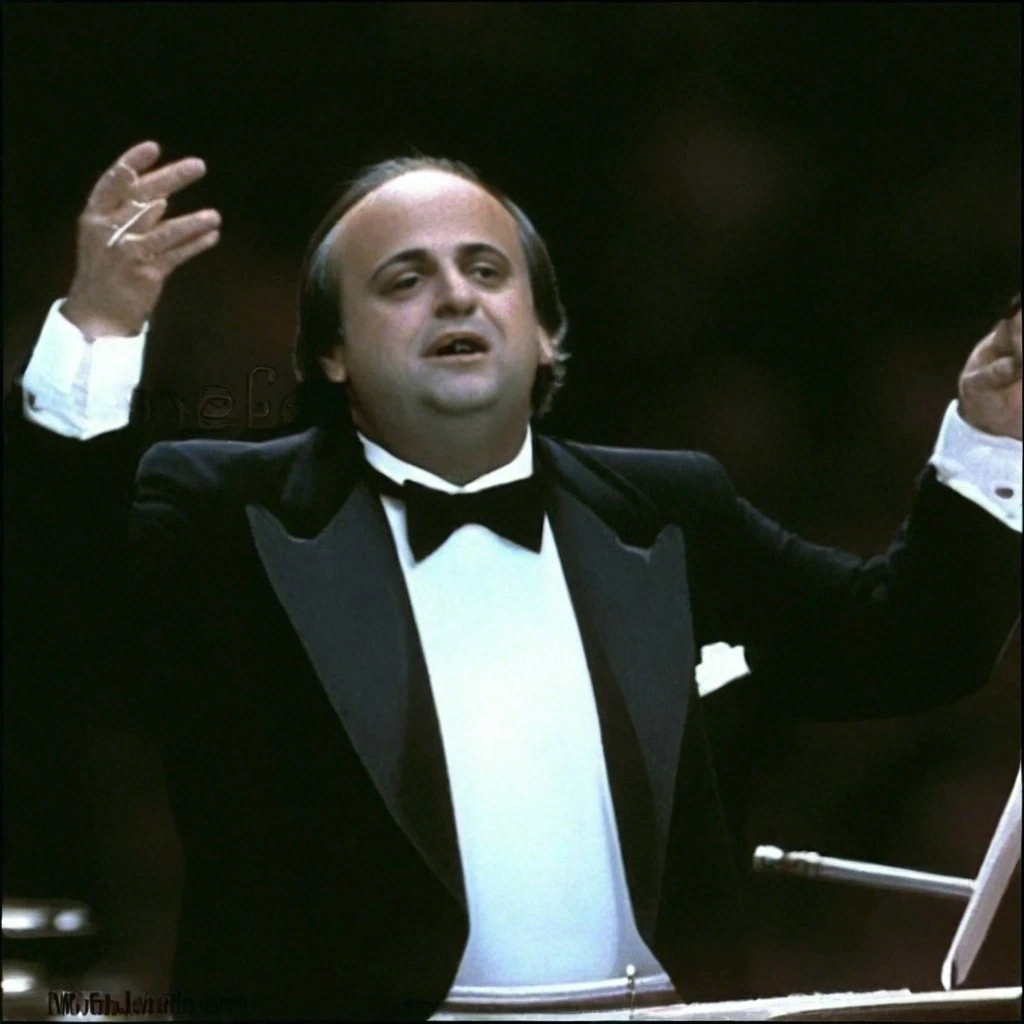Introduction
Miklós Rózsa stands as one of the most esteemed composers in the history of film music. Renowned for his evocative and richly textured scores, Rózsa’s contributions to cinema have left an indelible mark, shaping the emotional landscape of countless films across various genres. His mastery of orchestration, coupled with a profound understanding of storytelling, elevated the role of music in film, earning him three Academy Awards and a lasting legacy that continues to inspire composers and filmmakers alike.
Born on April 18, 1907, in Budapest, Hungary, Miklós Rózsa’s musical journey began at a young age. His early exposure to classical music and the vibrant cultural scene of Budapest laid the foundation for his future career. After studying the violin and composition at the Leipzig Conservatory and the University of Leipzig, Rózsa embarked on a journey that would lead him to the forefront of film scoring.
Rózsa’s arrival in Hollywood in the late 1930s marked the beginning of a prolific and illustrious career. His ability to seamlessly blend classical techniques with contemporary sensibilities quickly caught the attention of filmmakers, establishing him as a sought-after composer in the industry. From sweeping orchestral melodies to haunting motifs, Rózsa’s music possessed a versatility and depth that transcended the screen, leaving an indelible impression on audiences worldwide.
Throughout his career, Rózsa collaborated with some of the most iconic directors of his time, including Alfred Hitchcock, Billy Wilder, and Charlton Heston. His scores became synonymous with the films they accompanied, enhancing the dramatic tension, heightening emotional moments, and capturing the essence of each narrative with unparalleled precision.
Beyond his work in film, Rózsa’s contributions to the world of music extended to the concert hall, where his compositions received critical acclaim. His commitment to artistic excellence and his dedication to pushing the boundaries of orchestral music solidified his reputation as a visionary composer.
As we delve deeper into the life and work of Miklós Rózsa, we uncover a tapestry of creativity, innovation, and passion that continues to resonate with audiences decades after his passing. Join us on a journey through the extraordinary legacy of a maestro whose music continues to enchant and inspire generations of cinephiles and music lovers alike.
Early Years and Influences
Miklós Rózsa’s formative years were characterized by a rich tapestry of cultural influences and musical exploration, laying the groundwork for his future as a prolific composer. Born on April 18, 1907, in Budapest, Hungary, Rózsa was immersed in a vibrant artistic environment from an early age. His parents, both of whom were accomplished musicians, nurtured his passion for music and provided him with the necessary guidance and support to pursue his artistic endeavors.
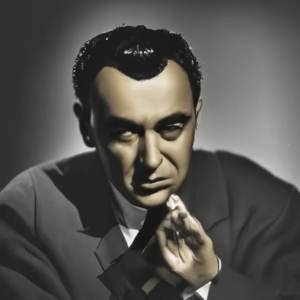 Growing up in Budapest, Rózsa was exposed to the works of renowned composers such as Franz Liszt, Béla Bartók, and Zoltán Kodály, whose innovative approaches to composition would leave a lasting impression on his own musical style. The city’s rich cultural heritage and thriving music scene served as a fertile ground for Rózsa’s artistic development, sparking his curiosity and igniting his passion for music.
Growing up in Budapest, Rózsa was exposed to the works of renowned composers such as Franz Liszt, Béla Bartók, and Zoltán Kodály, whose innovative approaches to composition would leave a lasting impression on his own musical style. The city’s rich cultural heritage and thriving music scene served as a fertile ground for Rózsa’s artistic development, sparking his curiosity and igniting his passion for music.
Rózsa’s early musical education began with the violin, an instrument he would master with remarkable proficiency. His studies at the Royal Academy of Music in Budapest provided him with a solid foundation in classical music theory and technique, honing his skills as both a performer and a composer. Under the guidance of esteemed teachers, Rózsa’s musical talents flourished, paving the way for his future success in the world of music.
In addition to his formal education, Rózsa’s musical influences were shaped by his exposure to Hungarian folk music, with its intricate rhythms, haunting melodies, and rich harmonic textures. The folk traditions of his homeland would find their way into Rózsa’s compositions, imbuing them with a sense of authenticity and cultural resonance.
Rózsa’s love for cinema also blossomed during his youth, as he became captivated by the magic of the silver screen. His early experiences with film would later inspire his career as a film composer, as he sought to marry his passion for music with his fascination for storytelling.
As Rózsa embarked on his musical journey, his early years in Budapest would remain a source of inspiration and influence, shaping the trajectory of his career and informing the unique musical voice that would define his legacy. From the streets of Budapest to the sound stages of Hollywood, Rózsa’s journey was marked by a relentless pursuit of artistic excellence and a deep appreciation for the transformative power of music.
Artistic Evolution and Musical Identity
Miklós Rózsa’s artistic evolution and musical identity are characterized by a blend of tradition and innovation, weaving together diverse influences to create a distinctive and compelling body of work. From his early compositions in Hungary to his groundbreaking scores in Hollywood, Rózsa’s journey as a composer was marked by a relentless pursuit of excellence and a commitment to pushing the boundaries of musical expression.
Rózsa’s early years in Budapest laid the foundation for his artistic sensibilities, as he immersed himself in the rich cultural tapestry of his homeland. Influenced by the works of Hungarian composers such as Béla Bartók and Zoltán Kodály, Rózsa developed a deep appreciation for folk music and its expressive power. This influence would manifest itself in his later compositions, as he incorporated elements of Hungarian folk melodies and rhythms into his own unique musical language.
As Rózsa’s career progressed, his artistic vision continued to evolve, embracing new techniques and exploring innovative approaches to composition. His move to Paris in the 1930s exposed him to the vibrant avant-garde music scene, where he encountered the works of composers such as Igor Stravinsky and Arnold Schoenberg. Inspired by their experimentalism and willingness to challenge musical conventions, Rózsa began to incorporate modernist elements into his compositions, pushing the boundaries of traditional orchestral music.
However, it was Rózsa’s arrival in Hollywood in the late 1930s that would truly define his musical identity and shape his legacy as a film composer. In the bustling world of Tinseltown, Rózsa found a new canvas for his creative talents, as he embarked on a prolific career scoring films across various genres. His collaboration with directors such as Alfred Hitchcock, Billy Wilder, and William Wyler resulted in some of the most iconic scores in cinema history, earning him critical acclaim and widespread recognition.
Central to Rózsa’s musical identity was his mastery of orchestration and his ability to evoke emotion through music. His scores were characterized by lush melodies, intricate harmonies, and dramatic orchestrations, creating a rich sonic tapestry that brought films to life. Whether capturing the suspense of a Hitchcock thriller or the grandeur of a historical epic, Rózsa’s music was always in service of the story, enhancing the narrative and deepening the audience’s emotional connection to the film.
Throughout his career, Rózsa remained true to his artistic vision, continuing to push the boundaries of film music and explore new avenues of expression. From his early influences in Hungary to his groundbreaking work in Hollywood, Rózsa’s artistic evolution was a testament to his unwavering commitment to excellence and his enduring legacy as one of the greatest composers of the 20th century.
Career Milestones and Achievements
Miklós Rózsa’s career is punctuated by numerous milestones and achievements, each contributing to his status as one of the most celebrated composers in the history of film music. From his early successes in Hollywood to his enduring legacy as a pioneer of cinematic scoring, Rózsa’s journey is marked by a series of significant accomplishments that have left an indelible mark on the world of music and cinema.
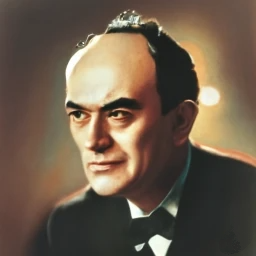 One of Rózsa’s earliest career milestones came with his move to Hollywood in the late 1930s, where he quickly established himself as a formidable talent in the film industry. His breakthrough came with his score for the 1940 film “The Thief of Bagdad,” which earned him his first Academy Award nomination for Best Original Score. The film’s sweeping orchestral melodies and lush arrangements showcased Rózsa’s mastery of the craft and set the stage for his future success in Hollywood.
One of Rózsa’s earliest career milestones came with his move to Hollywood in the late 1930s, where he quickly established himself as a formidable talent in the film industry. His breakthrough came with his score for the 1940 film “The Thief of Bagdad,” which earned him his first Academy Award nomination for Best Original Score. The film’s sweeping orchestral melodies and lush arrangements showcased Rózsa’s mastery of the craft and set the stage for his future success in Hollywood.
Throughout the 1940s and 1950s, Rózsa continued to solidify his reputation as one of the leading composers in the industry, collaborating with some of the most iconic directors of his time. His scores for films such as “Spellbound” (1945), “Ben-Hur” (1959), and “El Cid” (1961) earned him three Academy Awards for Best Original Score, cementing his status as a Hollywood legend.
In addition to his work in film, Rózsa also achieved significant success in the world of concert music. His compositions, including symphonies, concertos, and chamber music, were performed by leading orchestras and ensembles around the world, earning him critical acclaim and prestigious awards.
Rózsa’s contributions to the art of film scoring extended beyond his individual achievements, as he played a pivotal role in shaping the role of music in cinema. His innovative use of leitmotifs, thematic development, and orchestral coloration set new standards for film music composition, influencing generations of composers and filmmakers.
In recognition of his contributions to the world of music and cinema, Rózsa received numerous honors and awards throughout his career, including a star on the Hollywood Walk of Fame and induction into the Classical Music Hall of Fame. His enduring legacy continues to be celebrated by audiences and critics alike, with his music remaining a beloved and integral part of the cinematic experience.
As we reflect on the career milestones and achievements of Miklós Rózsa, we are reminded of his unparalleled talent, creativity, and impact on the world of music and film. From his early successes in Hollywood to his lasting legacy as a master composer, Rózsa’s contributions continue to inspire and captivate audiences around the globe.
Social and Cultural Impact
Miklós Rózsa’s social and cultural impact transcends the realm of film music, influencing both the industry and society at large in profound ways. Through his innovative compositions and groundbreaking approaches to scoring, Rózsa not only shaped the sonic landscape of cinema but also contributed to broader conversations surrounding art, culture, and identity.
One of Rózsa’s most significant contributions to the social and cultural landscape was his ability to infuse his music with a sense of cultural authenticity and emotional resonance. Drawing inspiration from his Hungarian heritage and a diverse array of musical influences, Rózsa’s scores were imbued with a richness and depth that reflected the complexities of the human experience. Whether evoking the sweeping vistas of ancient Rome in “Ben-Hur” or capturing the psychological depths of Hitchcockian suspense in “Spellbound,” Rózsa’s music transcended language and cultural barriers, speaking to audiences on a universal level.
In addition to his thematic richness, Rózsa’s music also played a crucial role in shaping the social and cultural context of the films it accompanied. His collaborations with directors such as Alfred Hitchcock, Billy Wilder, and William Wyler helped to define entire genres and cinematic movements, influencing the visual and narrative conventions of Hollywood cinema for generations to come. Rózsa’s scores became an integral part of the cinematic experience, enhancing the emotional impact of the stories they accompanied and providing a powerful means of cultural expression.
Beyond the realm of cinema, Rózsa’s influence extended to the broader music industry, where his innovative approaches to composition and orchestration inspired countless composers and musicians. His use of leitmotifs, thematic development, and symphonic structure set new standards for film music composition, paving the way for future generations of composers to explore the possibilities of the medium.
Furthermore, Rózsa’s commitment to artistic excellence and his unwavering dedication to his craft served as a source of inspiration for aspiring artists and musicians around the world. His ability to seamlessly blend classical techniques with contemporary sensibilities demonstrated the timeless relevance of his music and its ability to transcend cultural and temporal boundaries.
In summary, Miklós Rózsa’s social and cultural impact is a testament to the transformative power of music and its ability to shape our perceptions, emotions, and identities. Through his pioneering work in film scoring and his enduring legacy as a master composer, Rózsa left an indelible mark on the world of music and cinema, enriching the lives of audiences and artists alike.
Personal Life: Behind the Scenes
Beyond his illustrious career as a composer, Miklós Rózsa’s personal life offers a glimpse into the man behind the music—a figure shaped by both triumphs and challenges, and whose experiences informed his artistic sensibilities.
Born into a musical family on April 18, 1907, in Budapest, Hungary, Rózsa’s early years were steeped in a love for music and culture. Raised in a supportive environment by his parents, Rózsa’s upbringing laid the foundation for his future as a composer, instilling in him a deep appreciation for the arts and a strong sense of identity rooted in his Hungarian heritage.
However, Rózsa’s path to success was not without its obstacles. The turbulent political climate of Europe in the early 20th century, marked by two world wars and the rise of totalitarian regimes, cast a shadow over Rózsa’s formative years. His experiences navigating these tumultuous times would later find expression in his music, as he sought to capture the human drama and resilience in the face of adversity.
Rózsa’s personal life was also marked by a series of significant relationships that left an indelible impact on his work and worldview. His marriage to Margaret Finlason in 1943 provided him with a steadfast partner and collaborator, whose unwavering support bolstered his creative endeavors. Together, they navigated the challenges of life in Hollywood and forged a bond that endured until Rózsa’s passing.
Despite his professional success, Rózsa grappled with his own inner demons, including struggles with depression and self-doubt. His introspective nature and intense emotional depth found expression in his music, as he sought solace and catharsis through composition. The themes of longing, redemption, and the quest for meaning that permeate his scores reflect Rózsa’s own existential journey and his quest for transcendence amidst the vicissitudes of life.
In his later years, Rózsa’s personal life was marked by a sense of reflection and legacy-building. As he looked back on his storied career and the impact of his music, he remained committed to preserving his artistic legacy for future generations. His efforts to archive his compositions and writings ensured that his contributions to the world of music would be remembered and celebrated for years to come.
In summary, Miklós Rózsa’s personal life offers a nuanced portrait of a complex and multifaceted individual—a man whose experiences, relationships, and inner struggles shaped the music that continues to captivate audiences around the world. Beyond the accolades and achievements, Rózsa’s humanity shines through in his music, reminding us of the profound connections that bind us all together in the shared journey of life.
Discography and Creative Works
Miklós Rózsa’s discography and creative works span a vast array of genres and mediums, showcasing his versatility and mastery as a composer. From his iconic film scores to his acclaimed concert works, Rózsa’s contributions to the world of music are as diverse as they are influential.
Film Scores:
Rózsa’s legacy as a film composer is perhaps best encapsulated by his extensive catalog of film scores, which includes over 100 compositions spanning several decades. His collaborations with legendary directors such as Alfred Hitchcock, Billy Wilder, and William Wyler produced some of the most beloved and enduring soundtracks in cinematic history.
Some of Rózsa’s most notable film scores include:
1. “Spellbound” (1945) – Known for its haunting theremin motifs and lush orchestral arrangements, Rózsa’s score for “Spellbound” perfectly captures the psychological tension and mystery of Hitchcock’s classic thriller.
2. “Ben-Hur” (1959) – Rózsa’s epic score for “Ben-Hur” is widely regarded as one of the greatest film scores of all time, earning him his third Academy Award for Best Original Score. The film’s grandiose themes and majestic orchestrations perfectly complement the epic scope and scale of the story.
3. “El Cid” (1961) – Rózsa’s stirring score for “El Cid” captures the romance, drama, and spectacle of the medieval epic, featuring sweeping melodies and lush arrangements that evoke the splendor of medieval Spain.
In addition to these iconic scores, Rózsa also composed music for a wide range of other films, including “The Thief of Bagdad” (1940), “Double Indemnity” (1944), and “Quo Vadis” (1951), among many others.
Concert Works:
In addition to his work in film, Rózsa was also a prolific composer of concert music, producing a diverse body of work that encompassed symphonies, concertos, chamber music, and more. His concert works often showcased his mastery of orchestration and his ability to evoke emotion through music, earning him critical acclaim and prestigious awards.
Some of Rózsa’s notable concert works include:
1. Violin Concerto, Op. 24 (1953) – Rózsa’s Violin Concerto is considered one of the most important works in the violin repertoire, featuring virtuosic solo passages and lush, romantic melodies.
2. Symphony No. 1, Op. 9 (1933) – Rózsa’s First Symphony is a powerful and evocative work that showcases his command of symphonic form and his ability to create sweeping, dramatic narratives through music.
3. Hungarian Serenade, Op. 10 (1934) – Inspired by the folk music of his homeland, Rózsa’s Hungarian Serenade is a vibrant and colorful work that captures the spirit of Hungarian folk traditions.
In addition to these works, Rózsa composed numerous other concert pieces, including chamber music, choral works, and solo piano compositions, all of which continue to be performed and celebrated by musicians and audiences around the world.
Legacy:
Miklós Rózsa’s discography and creative works represent a lasting legacy that continues to inspire and captivate audiences across generations. Whether through his iconic film scores or his acclaimed concert music, Rózsa’s music remains a testament to his extraordinary talent, creativity, and passion for the art of music.
Fan Engagement and Community Building
Miklós Rózsa’s enduring legacy extends beyond his music and into the hearts and minds of his dedicated fanbase, whose passion and admiration for his work have fostered a vibrant community dedicated to celebrating his contributions to the world of music and cinema.
One of the most significant aspects of Rózsa’s fan engagement is the enduring popularity of his film scores, which continue to resonate with audiences worldwide. From dedicated cinephiles to casual moviegoers, fans of Rózsa’s music span generations and demographics, united by their shared appreciation for his timeless melodies and evocative orchestrations. Online forums, social media groups, and fan clubs provide platforms for enthusiasts to connect, share their favorite scores, and discuss the impact of Rózsa’s music on their lives.
In addition to fostering a sense of camaraderie among fans, these online communities also serve as repositories of knowledge and information about Rózsa’s life and work. Fans often engage in lively discussions about his filmography, concert works, and artistic influences, deepening their understanding of Rózsa’s creative process and contextualizing his contributions within the broader landscape of music and cinema.
Fan engagement extends beyond virtual spaces into the realm of live performance, where orchestras and ensembles around the world pay tribute to Rózsa’s music through concert performances and film screenings. From symphonic renditions of his most beloved film scores to dedicated retrospectives of his concert works, these events provide fans with opportunities to experience Rózsa’s music in a live setting and connect with fellow enthusiasts who share their passion.
Furthermore, initiatives such as educational outreach programs and music festivals serve to introduce new audiences to Rózsa’s music and inspire future generations of composers and musicians. Workshops, masterclasses, and lectures offer aspiring artists valuable insights into Rózsa’s creative process and techniques, fostering a sense of continuity and innovation within the broader artistic community.
In recent years, efforts to preserve and promote Rózsa’s legacy have expanded to include archival projects, reissues of his recordings, and commemorative events honoring significant milestones in his career. These endeavors not only celebrate Rózsa’s contributions but also ensure that his music remains accessible and appreciated for years to come.
In summary, Miklós Rózsa’s fan engagement and community building efforts have helped to foster a dynamic and inclusive community of fans, scholars, and artists dedicated to celebrating his extraordinary legacy. Through their passion, creativity, and shared love of music, Rózsa’s fans continue to uphold his legacy and ensure that his music continues to inspire and enrich lives for generations to come.
Enduring Legacy and Historical Significance
Miklós Rózsa’s enduring legacy and historical significance are rooted in his transformative impact on the worlds of music and cinema, as well as his lasting influence on generations of composers, filmmakers, and audiences around the globe. From his pioneering techniques in film scoring to his contributions to the broader landscape of concert music, Rózsa’s legacy continues to resonate and inspire long after his passing.
One of the most enduring aspects of Rózsa’s legacy is his groundbreaking work in film scoring, which helped to redefine the role of music in cinema and set new standards for excellence in the industry. His innovative use of leitmotifs, thematic development, and orchestral coloration elevated film music to an art form in its own right, enriching the cinematic experience and deepening the emotional impact of the stories they accompanied. Rózsa’s scores became an integral part of the filmmaking process, influencing directors, composers, and audiences alike and shaping the way we perceive and appreciate movies.
Furthermore, Rózsa’s contributions to the world of concert music have left an indelible mark on the classical music repertoire, with works such as his Violin Concerto and Symphony No. 1 standing as timeless examples of his genius as a composer. His ability to seamlessly blend classical techniques with contemporary sensibilities paved the way for future generations of composers to explore new avenues of expression and innovation, ensuring that his legacy remains relevant and influential in the modern musical landscape.
In addition to his artistic achievements, Rózsa’s historical significance lies in his ability to transcend cultural and temporal boundaries, speaking to audiences across generations and continents. His music continues to be performed and celebrated in concert halls, film screenings, and academic institutions around the world, demonstrating the enduring power of his compositions to captivate and inspire audiences of all ages.
Moreover, Rózsa’s legacy extends beyond the realm of music, encompassing broader themes of creativity, resilience, and the human spirit. His life story, marked by triumphs and challenges alike, serves as a source of inspiration for aspiring artists and musicians, reminding us of the transformative power of art to transcend adversity and unite people across cultures and generations.
As we reflect on Miklós Rózsa’s enduring legacy and historical significance, we are reminded of the profound impact of his music on the world around us. Through his innovative compositions, groundbreaking techniques, and unwavering commitment to artistic excellence, Rózsa has left an indelible mark on the fabric of music and cinema, enriching our lives and shaping the cultural landscape for generations to come.
Conclusion and Reflections
In conclusion, the life and work of Miklós Rózsa stand as a testament to the transformative power of music and its ability to shape our perceptions, emotions, and identities. From his humble beginnings in Budapest to his iconic status as one of the greatest composers in the history of film music, Rózsa’s journey is a testament to the triumph of creativity, resilience, and passion.
Throughout his career, Rózsa’s music served as a bridge between cultures, genres, and mediums, uniting audiences around the world in a shared appreciation for the beauty and power of sound. His innovative approaches to composition, his groundbreaking techniques in film scoring, and his unwavering commitment to artistic excellence set new standards for excellence in the industry and inspired generations of composers and filmmakers to follow in his footsteps.
Moreover, Rózsa’s personal journey—from his early struggles and triumphs to his enduring legacy as a master composer—reminds us of the profound connections that bind us all together in the shared human experience. His music, with its timeless melodies and evocative orchestrations, continues to resonate with audiences of all ages, serving as a source of inspiration, comfort, and joy in times of both celebration and sorrow.
As we reflect on the life and work of Miklós Rózsa, we are reminded of the enduring power of art to transcend boundaries, forge connections, and illuminate the beauty of the human spirit. His legacy serves as a beacon of creativity and hope, inspiring us to embrace our own passions, pursue our dreams, and leave a lasting impact on the world around us.
In the words of Rózsa himself, “Music is a moral law. It gives soul to the universe, wings to the mind, flight to the imagination, and charm and gaiety to life and to everything.” May we continue to be inspired by his timeless music and his enduring legacy for generations to come.
